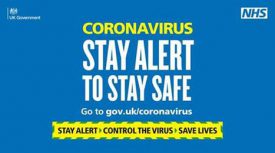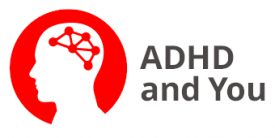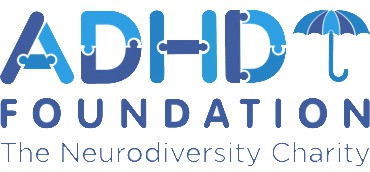 Our main aim at this time is to support you through this difficult time. Therefore, we want to reassure you that our main objective is to continue to provide a neurodevelopmental assessment service for children and young people in Doncaster within government guidelines.
Our main aim at this time is to support you through this difficult time. Therefore, we want to reassure you that our main objective is to continue to provide a neurodevelopmental assessment service for children and young people in Doncaster within government guidelines.
At this time the Coronavirus is having an ever growing impact on our staffing levels and the way we are offering our service. Currently we will be starting the assessments by offering families the choice of the initial and developmental appointments over the telephone. If you do not choose this option you have the choice of remaining where you are on our waiting list, until we resume face to face appointments again. Following the telephone assessments, the overall neurodevelopmental assessment will be paused and additional components of the assessment such as observations and meeting the child will be resumed in line with government guidance.
What is an Attention Hyperactivity Deficit Disorder?
If your child has Attention Deficit Hyperactivity Disorder they may have lots of energy and find it difficult to concentrate. They may get distracted very easily and find it hard to control their speech and actions. Attention Deficit Hyperactivity Disorder is one of the most common childhood disorders and can continue through adolescence and into adulthood. Symptoms often become noticeable between the ages of 3-7 years.
A related condition Attention Deficit Disorder has similar difficulties however it doesn’t involve constant movement and fidgeting and the main problem is a difficulty concentrating.
The Attention Deficit Hyperactivity Disorder Foundation Neurodiversity Charity website has more information on what Attention Deficit Hyperactivity Disorder is and provides useful resources and tips to help parents and carers, and young people understand and cope with an Attention Deficit Hyperactivity Disorder diagnosis. The website also provides links to training courses and other events for families, teachers and other professionals.
Attention Deficit Hyperactivity Disorder Foundation Neurodiversity Charity
Find out about resources, services, support, activities and events for Doncaster children and young people with Special Educational Needs and Disabilities (SEND).
Watch – Doncaster Local Offer – Special Educational Needs
Further Links and Information
Attention Deficit Hyperactivity Disorder Post Diagnosis Pathway
We will advise you by offering and signposting you to education and information on the causes and impact of Attention Deficit Hyperactivity Disorder along with additional resources and strategies. Attention Deficit Hyperactivity Disorder and behavioural strategies will be offered through the 123 magic parenting programme. With consent, the team will also liaise with your child’s school or college and offer classroom strategies if required. Medication will be offered if Attention Deficit Hyperactivity Disorder symptoms are causing a persistent significant impairment after strategies have been implemented and environmental adjustments have been made.
During the first appointment, the CAMHS nurse may need to take your child’s height, weight and blood pressure as a baseline measurement. If medication is started your child will visit the CAMHS Attention Deficit Hyperactivity Disorder clinic every 3-6 months to be reviewed.
What happens once I turn 18?
When you/your child turns 17, the Attention Deficit Hyperactivity Disorder CAMHS nurse will begin to discuss the process of transition to the adult service. This involves an appointment with the CAMHS Attention Deficit Hyperactivity Disorder nurse to discuss a collaborative and person-centred plan of care with you and your parent/carer. This appointment will include what to expect from the adult service, where you can find it and who your new worker will be.
The last appointment will be a joint appointment with your CAMHS Attention Deficit Hyperactivity Disorder nurse and the Adult Attention Deficit Hyperactivity Disorder Nurse. This appointment will be led by the Adult Attention Deficit Hyperactivity Disorder Nurse but your CAMHS Attention Deficit Hyperactivity Disorder nurse will be there to support you.
Links to further information
 The Family Lives website has advice & information for parents at every stage of a child’s life – Early Years Development, Primary and Secondary Education, Teenagers and Bullying. Specifically, they have a section on SEND which provides information and advice about Special Educational Needs, along with sleep advice and fun things to do. They also have confidential helplines, forums, parenting advice videos and online parenting courses.
The Family Lives website has advice & information for parents at every stage of a child’s life – Early Years Development, Primary and Secondary Education, Teenagers and Bullying. Specifically, they have a section on SEND which provides information and advice about Special Educational Needs, along with sleep advice and fun things to do. They also have confidential helplines, forums, parenting advice videos and online parenting courses.
 This website explains the symptoms and causes of Attention Deficit Hyperactivity Disorder, how Attention Deficit Hyperactivity Disorder affects the brain, co-existing conditions and positive traits. It has a section around living with Attention Deficit Hyperactivity Disorder and an overview of this at each stage in life (childhood, adolescence and adulthood).
This website explains the symptoms and causes of Attention Deficit Hyperactivity Disorder, how Attention Deficit Hyperactivity Disorder affects the brain, co-existing conditions and positive traits. It has a section around living with Attention Deficit Hyperactivity Disorder and an overview of this at each stage in life (childhood, adolescence and adulthood).
 Free educational resource on children and young people’s mental health for adults, but can also be really useful for teenagers. It covers lot of topics.
Free educational resource on children and young people’s mental health for adults, but can also be really useful for teenagers. It covers lot of topics.
Attention Deficit Hyperactivity Disorder Foundation Resources

To make a referral to the Attention Deficit Hyperactivity Disorder pathway, a full Global Developmental Assessment must be carried out by a paediatrician, which outlines specific concerns regarding Attention Deficit Hyperactivity Disorder symptoms. All referrals are fully screened by the Child and Adolescent Mental Health Service team to determine suitability to the pathway.
